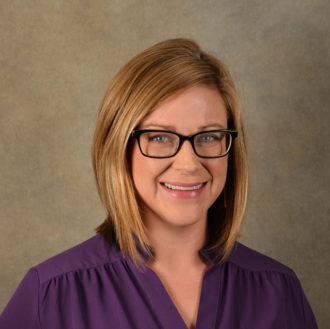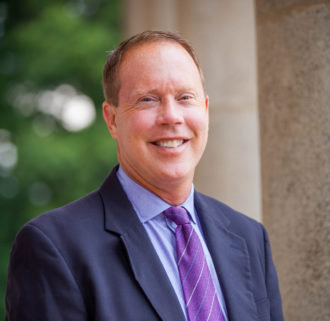After Patsy Keever was elected to the Buncombe County Board of Commissioners in 1992, she noticed something interesting when the commissioners — all men except for Keever — held a community meeting to hear from residents in Leicester. “The men in the audience … just sort of ignored me and talked to the other commissioners,” she says.
Anyone addressing a group of elected officials in Buncombe County today who did not engage with its female members would risk being ignored themselves, or worse: 38% of local officeholders chosen by popular vote in the county are women, as of mid-February. They make up a majority of two elected boards, and two more boards are evenly split between men and women.
Political scientists and women who have run for office in the county suggest that obstacles for women to get elected to local office here are much lower now than they once were — even though the proportion of female elected officials is still a good bit less than their share of the county’s population.
Amy Evans, a Black Mountain Republican who ran unsuccessfully for state House in 2018, says she never felt as if she were treated differently during the campaign because of her gender, although it did come up as she was being encouraged to run. She and another female candidate “were told that women had an advantage,” she says.
However, Buncombe County’s story is somewhat different from that of North Carolina as a whole.
One measure of gender parity among elected officials says women’s grasp on the levers of power in the state has slipped a bit since 2014. And, after dipping during the last decade, women’s share of seats in the state General Assembly has largely recovered but is still only at about the same level it was in 2009.
Fueled by backlash against President Donald Trump, female candidates in much of the nation made big gains in the 2018 election, notes David McLennan, a political scientist at Meredith College in Raleigh who studies women in politics. But “North Carolina did not see the same progress,” he says.
Can a woman win?
Elizabeth Warren sparked another round of the debate over how electable female candidates are last month when she accused Bernie Sanders, one of her rivals for the Democratic presidential nomination, of telling her in 2018 he didn’t believe a woman could be elected. Sanders denied the charge.
There is a broad consensus among political scientists that, all things being equal, a female candidate for elected office has a slight edge over a male one. Those who have quantified that advantage in terms of the extra vote share a woman gets put it at about 2%, McLennan says. Nonincumbent female candidates were more likely to win than nonincumbent men when running for U.S. House, U.S. Senate, governor or other statewide elected office in 2018, the Center for American Women and Politics at Rutgers University found.

“Typically, once women make the decision to run and they do run, they win” more often than men, says Christine Bricker, a political science professor at Warren Wilson College.
“If you look at public opinion and you say, ‘What do people want in their leaders?’ they’ll say, ‘The ability to compromise, understanding my problems,’” McLennan says. “The public likes a lot of things they think are associated with women.”
But in any given race, all things rarely are equal. Female candidates for president, for instance, have to overcome the somewhat circular impression among some voters that they cannot win or that their gender would be significant handicap for their electability. An Ipsos poll done for the Daily Beast last June found that 79% of Democrats and independents said they would be comfortable with a female president, but only 33% of that same group thought their neighbors would be.
The idea that female candidates in general have an advantage may seem odd in light of Trump beating Hillary Clinton in 2016 despite being taped bragging about grabbing women by their genitals, accused of sexually assaulting women (which Trump denies) and making disparaging remarks about women. And the Center for American Women and Politics says polling shows there is still sexism in parts of the American electorate.
Bricker and McLennan essentially say the 2016 presidential race does not sum up everything known about women’s ability to get elected. Clinton “did not campaign as a woman,” McLennan says, meaning she did not underline her gender or stress qualities like empathy or trustworthiness that voters often associate with female candidates.
Bricker says researchers see latent racism and sexism as playing a role in the 2016 result, not to mention the effect of the Electoral College. Clinton won the popular vote, but the Electoral College gives rural areas, which tend to be more conservative, extra weight when determining the winner of a presidential contest, she notes.
A big shift
No one suggests that women running for office do not face challenges that men do not or that getting elected is easy for anyone. “Just eat your Wheaties if you’re going to get involved in politics,” Evans says.

Female candidates may still have to deal with misogynistic threats and online harassment, expectations by some that they should be at home raising their children instead of running for office and media coverage that sometimes gives undue attention to their appearance or dress. But Evans and two other women who have run for office in Buncombe County in recent years say they rarely or never felt they were treated differently as they campaigned because of their gender.
In her races for school board and state Senate over the last 10 years, voters wanted to know “what my values were, what I stood for, what I wanted to do in office,” says Lisa Baldwin, a Fairview Republican. Being a woman didn’t come up, she says.
Sheneika Smith, a Democrat who won a seat on Asheville City Council in 2017, says the question of gender “wasn’t noticeable to me when I ran.” An exception was expressions of concern from friends over how Smith would manage the demands of the office as a single mother, she says. “I think it came from a really honest and considerate place from most people, because they wanted to see me do a good job,” Smith says, adding that those who raised the issue didn’t appear to be trying to use it as a reason not to vote for her.
Keever, 72, a Democrat who has a total of six campaigns under her belt, says attitudes about female candidates have changed dramatically. At the time of her 1992 bid for a seat on what was then a five-member Board of Commissioners, “There was one spot that people sort of thought of as the woman’s spot,” Keever says. When Democrats nominated two women for commissioners’ seats in 2008, that sparked discussion about whether the county was ready for two women on the board, she recalls.
It was. Holly Jones and Carol Peterson, like the other Democrats in the race, won by comfortable margins.
Keever recalls feeling she should wait to run for office until her children had finished high school. Candidates and voters are much less likely to have that concern today, she says. They figure, “If men can have children and have a job and serve, so can women.”
Rural-urban differences
Buncombe County’s status as an urban county that leans increasingly Democratic means it is more fertile ground for female candidates than much of North Carolina. Meredith College researchers found that rural areas of the state, which also are more likely to vote Republican, are considerably less likely to elect women to public office. And, McLennan says, “It’s clearly the case that the Democratic Party is doing more to recruit women than the Republican Party.”
Meredith’s 2018 Status of Women in North Carolina Politics report found that women held less than a quarter of the roughly 5,000 elected positions in the state, down a little since 2015. There hasn’t been a new tally since the 2018 election, but McLennan says anecdotal evidence suggests women did not make the big gains in representation in North Carolina that they did in many other states.
The percentage of women candidates running in 2018 in the state was actually lower than it was in 2014, the Meredith report says. A national group promoting more women in public office ranked North Carolina 22nd among the states on women’s share of elected offices in 2019. But the state’s score of 23.5 on the gender parity index compiled by RepresentWomen means it was less than halfway to parity, which would be a score of 50.
Electoral districts drawn to favor Republican candidates and Democrats’ tendency to cluster in urban areas explain part of the difference between women’s 51% share of North Carolina’s population and their far lower proportion of election victories, experts say.
McLennan and Bricker said a big factor in North Carolina and elsewhere is a shortage of female candidates. Some women juggling the demands of family and job feel they don’t have time to run, and Bricker says research shows being recruited is much more important to women’s decision to run than men’s. “Women and men have very different perceptions of their electability,” she says. “It’s more likely that you have a man who thinks, ‘I’m qualified to run,’ than a woman who thinks she’s qualified to run even though they have the same qualifications.”
“A lot of people just lack confidence. They just don’t want to do it alone,” Smith says. “We need to strengthen our sisterhood.”
The generally slow pace of change in recent years contrasts with big increases in the number of female elected officials nationally in the 1980s and 1990s. But McLennan predicts changes in willingness to run and other factors affecting women’s likelihood of getting elected will result in more female officeholders in the future. Younger women “just don’t see the barriers that older generations have perceived,” he says.




Before you comment
The comments section is here to provide a platform for civil dialogue on the issues we face together as a local community. Xpress is committed to offering this platform for all voices, but when the tone of the discussion gets nasty or strays off topic, we believe many people choose not to participate. Xpress editors are determined to moderate comments to ensure a constructive interchange is maintained. All comments judged not to be in keeping with the spirit of civil discourse will be removed and repeat violators will be banned. See here for our terms of service. Thank you for being part of this effort to promote respectful discussion.